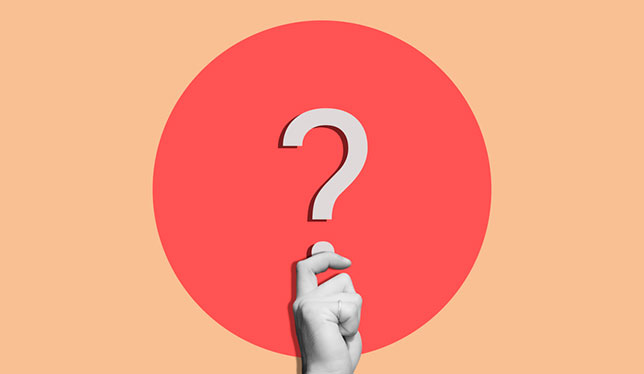The importance of curiosity
Teaching students how to responsibly question and discover answers must become a greater priority in education.

After over 20 years of being an academic in a scientific field and instructing countless numbers of students, I find myself increasingly concerned about the influences permeating through the education pathways of our society, including K-12, college, university, and continuing education. The move to ban books in schools, the criticism of building new knowledge-promoting resources such as libraries, the ideological interference of some governments in the education system and processes themselves, the siren song of disinformation, all continue an age-old practice of trying to control the knowledge available to citizens young and old.
If information access is muddled or stifled, it inhibits questioning of it. Even learned institutions are no longer immune to this phenomenon with the ever-increasing urge to adopt business-like principles to manage learning, particularly in science. A troubling phrase and approach to “teach them only what they need to know” has arisen. Associated with this is usually some kind of performance measurement or metric of teachers and learners in an attempt to show learning efficiencies.
I have never known any teacher or professor who has not strived to instruct students on what was important for them to understand at that point in time within a subject. However, what learners need is always changing since knowledge generation is constantly occurring. The word “only” is more alarming. How does anyone know what knowledge will only be needed, let alone be impactful, in the future? Facts are critically important to teach, but it is also essential to ignite in students and citizens the urge to discover knowledge: Why do I need to understand X? What is so important about Y? How does Z work? And so on.
Our use of interrogative pronouns such as what, when, why, and how is the basis on which learning is ignited and knowledge is produced. It is integral to an important compulsion in human beings: to be curious. Curiosity is the desire to discover and understand more about something through inquiry and is a necessary component of creativity, critical thinking, innovation, and societal advancement. Human history is filled with individuals who demonstrated immense curiosity (a particular favourite of mine being Leonardo Da Vinci) and furthered understanding and development of our world. With respect to the field of science, curiosity is the foundation from which scientists strive to produce reliable knowledge. Scientific curiosity has led to countless discoveries and subsequent impactful applications of the knowledge obtained. For example, Nobel laureate Donna Strickland was curious about lasers and electro-optics. Working with her mentor and fellow laureate Gerard Mourou, they created ultrashort high-intensity laser pulses also known as chirped lasers. These findings now have many applications including use in corrective eye surgeries and medical imaging. Gairdner award winner Pieter Cullis was fascinated with lipids and was particularly curious about researching the formation of lipid nanoparticles. His studies were a basis for the development of lipid nanoparticles used for effective and safe delivery of COVID-19 mRNA vaccines.
I have noticed that the pandemic has given way to an assault on curiosity among the public, especially related to science and medicine. This has been especially evident from politically and/or ideologically motivated trollers and disinformation con artists whose purpose seems to be to variously appease their political party member base, acquire wealth, or just make themselves feel powerful. With COVID-19 cases and deaths becoming data for the public to justifiably question the actions of such people or even some governments, the surest way to control the message and public opinion by denialists became obfuscation, data concealment, and/or advice to only listen to their disinformation. Only through the dedicated inquiries and work of professionals such as scientists, physicians, public health experts, teachers, as well as science and medical journalists, has accurate, dependable consensus information been kept in the public eye. This has allowed people to ask questions and discover facts such as the effectiveness of vaccines and other public measures to battle the pandemic.
Such successes in promoting curiosity and fact finding has since led some disinformation promoters to shift approaches with their rhetoric disguised as “just asking questions.” This approach is exposed as the con that it is (i.e. to seed doubt) when they refuse to do the responsible actions that curiosity demands of their questions: to be willing to discover and accept the best consensus facts and/or evidence available from viable vetted sources (e.g., research journals, researchers and professionals, science/medicine journalists, libraries, and educational institutions) as answers.
Teaching and urging students to responsibly question and learn how to discover answers need to become a greater priority in education. As we embark on shifts in teaching and learning in the post-pandemic period, we must better promote curiosity in our education streams as the foundation for developing more information literacy and critical thinking skills. The success of this strategy is now seen in countries like Finland whose citizens are constantly exposed to Russian disinformation.
I have observed firsthand how instilling and igniting curiosity in students empowers these individuals to continue asking questions and explore the answers to them independently, the basis of lifelong learning. As they become mentors themselves, such characteristics and passions in these individuals are transferred to others. This approach enables current and future citizens to become vital knowledge resources within our society who can communicate, support, or question societal decisions and be a trusted public voice in key areas of influence such as school boards, municipal, provincial, or national politics, and business. We need to produce knowledgeable citizens who can resist and counteract those who disinform, thereby helping ensure that evidence-based decision making takes place in our society despite so much disinformation.
We depend on curiosity as the basis of our learning and knowledge producing process. If curiosity is eroded or stifled and subsequent obfuscation, concealment, disinformation, and ignorance prevail, then in terms of information and subsequent societal decision making we are faced with “garbage in – garbage out” and the consequences that arise in our society as a result.
Daniel MacPhee is a professor of reproductive sciences and a department head at the University of Saskatchewan’s Western College of Veterinary Medicine.
Featured Jobs
- Business – Lecturer or Assistant Professor, 2-year term (Strategic Management) McMaster University
- Veterinary Medicine - Faculty Position (Large Animal Internal Medicine) University of Saskatchewan
- Psychology - Assistant Professor (Speech-Language Pathology)University of Victoria
- Canada Excellence Research Chair in Computational Social Science, AI, and Democracy (Associate or Full Professor)McGill University















Post a comment
University Affairs moderates all comments according to the following guidelines. If approved, comments generally appear within one business day. We may republish particularly insightful remarks in our print edition or elsewhere.
5 Comments
Very interesting piece- I too believe in leading with questions and I integrate the asking of questions into my teaching and learning as much as I can. I may be wanting to write an article with a title- something like “Planners- use questions to plan- not answers”( that is just off the top of my head). But in the field of planning practice (Urban and regional planners)- planners are so often in positions where they are supposed to be experts on many things/areas fostering more expertise- thus minimizing their ability to lead with how? why?, why not? what if….. In the book’ The Big Beautiful Question- the author-who I cannot recall- says that we evolve in our knowledge if we begin with a solid question rather than a statement or professing an answer (He has a TED Talk). What I want to ask is- why do people want to be experts in everything- you suggested money and power- are there others?
– another resource is the name Guzman (also has a TED talk and a book I believe- do they?
Thank you for wanting to ask more questions instead of looking for answers.
oh- more details on those references of a few people speaking the same language as you (and I)
– Warren Berger “The More Beautiful Question”- name of his book – and can find his TED talk this way
– Monica Guzman- TED Talk “How Curiosity will save us”- I believe she wrote in last months University Affairs Issue. and has a book – don’t know title
Thanks for this information. I will look into them. Appreciate it.
” This approach is exposed as the con that it is (i.e. to seed doubt) when they refuse to do the responsible actions that curiosity demands of their questions: to be willing to discover and accept the best consensus facts and/or evidence available from viable vetted sources (e.g., research journals, researchers and professionals, science/medicine journalists, libraries, and educational institutions) as answers.” – This is hypocritical within the context of promoting curiosity and condemning disinformation. We can never presume to have all the answers, especially not in science which, if done well, elucidates more questions than it does answers.
The idea that “consensus facts and/or evidence” can’t be challenged, questioned or explored further is irresponsible and dangerous. There was a time when the vast majority of physicians believed that smoking cigarettes was good for heart health. Imagine what human health would be like now if that consensus had never been challenged. The vast majority of the Western, developed world believed thalidomide to be perfectly safe for consumption by pregnant women and ridiculed Frances Oldham Kelsey for insisting on more evidence before approving it for use. After a decade of alienation because of her decision-making for the FDA, she was granted the President’s Award for Distinguished Federal Civilian Service by JFK because she protected unborn children from the effects of thalidomide by insisting on asking questions and exploring the product further before approving it for use.
What is the author’s real motivation for silencing critics and challengers? It sure isn’t to protect the public, nor is it to promote science. Debate and lack of consensus are exactly what drives scientific progress. Stop promoting nonsense narratives which seek to silence the challenges inconvenient to your perspective. There’s no place for that in real science and academia.
I disagree with your interpretation. In no way do I say answers are permanent. My reference link of reliable knowledge is meant to illustrate just that as over time answers can be “updated” as new information is obtained. This is the way Science is done. Curiosity can drive the generation of updated answers too. In this age of so much disinformation we need to find the best reliable knowledge that exists at that point in time to counteract the junk spread by those that deliberately misinform.